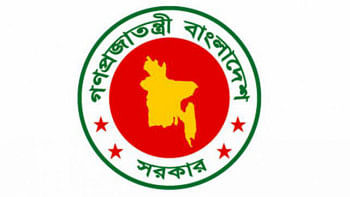Load shedding despite lower demand

Though the electricity demand has dropped with the onset of monsoon, the Bangladesh Power Development Board (PDB) is struggling to supply adequate power due to a shortage of gas and other fuel supply and maintenance works.
The demand for power during the monsoon months is about 15,000 megawatts, down from 17,000MW. But PDB is straining to supply even the reduced demand despite having the generation capacity of 26,364MW.
In the last couple of days, PDB has been supplying around 13,000MW to 14,000MW of electricity, according to generation data.
At least 10,000MW of generation capacity is sitting idle due to fuel shortage or short- and long-term maintenance: 5,132MW is lost for maintenance and 4,971MW for fuel shortage.
Of the 4,971MW sitting idle, 3,152MW is for want of gas, according to data from PDB.
If the PDB wants to run all the installed gas-fired power plants, it will require at least 1,959 million cubic feet of gas per day (mmcfd).
But for the past month or so, it has been getting about 950 mmcfd after Cyclone Remal damaged one of the two floating storage and regasification units (FSRU), according to data from Petrobangla. The FSRU would not be operational before July 15.
Subsequently, 36 of the 70 gas-fired power plants are now out of service.
Before Cyclone Remal, PDB was getting about 1,300 mmcfd, according to Petrobangla.
In the absence of an adequate gas supply for the power plants, the PDB was relying on coal-fired power plants. But those are generating below their capacity.
Of the three main coal-fired power plants, Rampal and SS Power are operating at half capacity at best, with only Payra in full run.
Then on June 25, the 1,496MW Adani coal-fired power plant in Jharkhand, India abruptly shut down for a technical glitch. The plant came back into operation only yesterday.
Subsequently, the PDB has to run the costly furnace oil-run power plants, which has been impacting the power generation cost, according to officials informed with the proceedings.
"We have enough power generation capacity and there should not be any more load shedding across the country. But we couldn't let that happen," said Ijaz Hossain, a former professor at the Bangladesh University of Engineering and Technology's department of chemical engineering.
There was about 1,000MW of load shedding in different parts of Bangladesh, according to data from the Bangladesh Rural Electrification Board, which supplies electricity to more than 70 percent of the subscribers, mainly in rural areas.
However, the PDB officials maintain the situation is stable.
"The weather is favourable [as the demand has dropped] -- we hope the situation will not further deteriorate," said Khandaker Mokammel Hossain, member (generation) of PDB.
The government always tries to cover up the actual situation, said M Shamsul Alam, energy advisor to Consumers Association of Bangladesh.
"Rather, they should admit the crisis and act accordingly," he said.
The gas supply situation is as bad as ever and unexpected situations have arisen too, said Hossain, the former BUET professor.
"We have to use high-cost furnace oil or diesel to keep the power supply normal and this is increasing the generation cost amid the dollar crunch. We had enough time to replace the high-cost fuel with renewables, but that did not happen. We need to rethink the whole situation more intensively," he added.
The government was never able to import as much fuel required to the power plants to meet the country's demand, said Alam, also the dean of Daffodil International University's faculty of engineering.
"They have just raised the power generation capacity without proper planning or demand analysis, which was highly required. We didn't follow any standard practice -- we have no policy either," he said.
For instance, sending so many power plants into maintenance at once is unusual, he said, adding that there were times when overloaded plants were put into operation and scheduled maintenance was postponed to meet the demand.
All the maintenance works should have been pre-scheduled and in rotation.
"It should not be done when power demand is high… this is just an excuse. We couldn't pay the fuel bills. We couldn't pay the plants' bills due to the dollar crunch. We have only taken loans from the donors and cleared dues with bonds. In the upcoming years, the loans will be paid. What will be the situation then, I can't imagine."


 For all latest news, follow The Daily Star's Google News channel.
For all latest news, follow The Daily Star's Google News channel. 








Comments